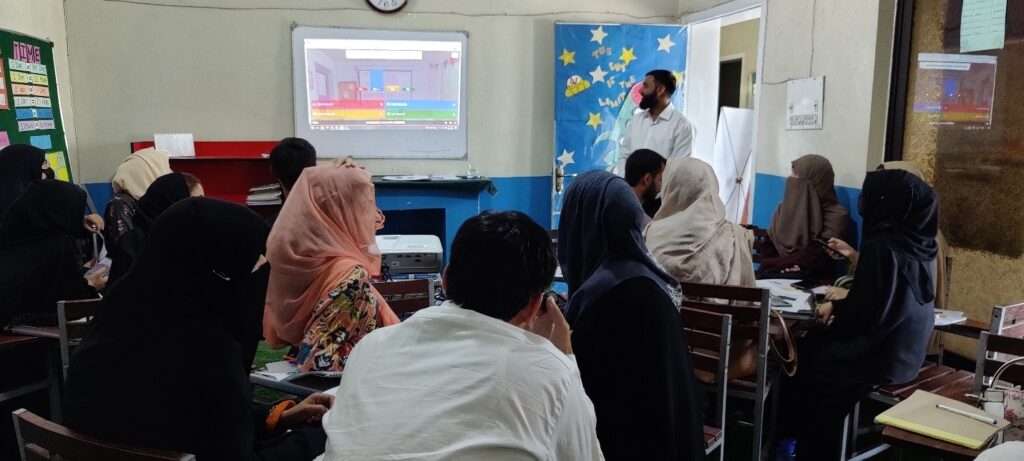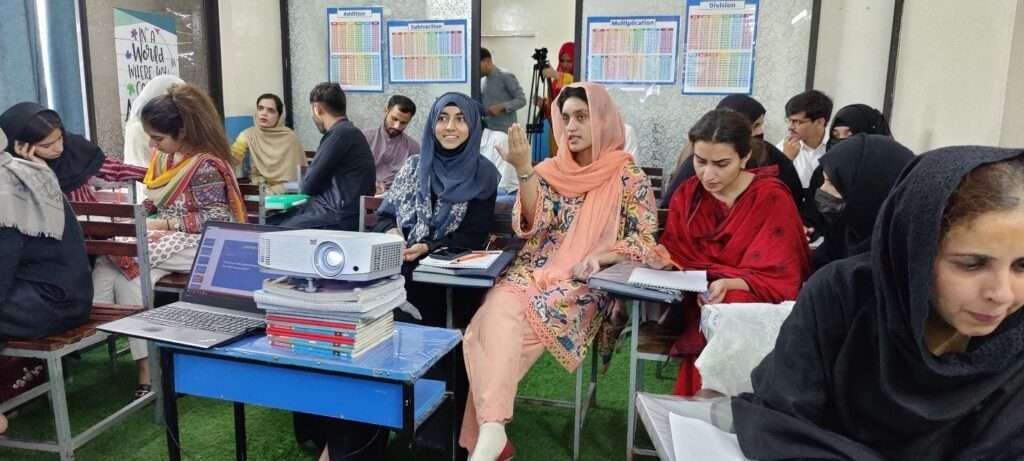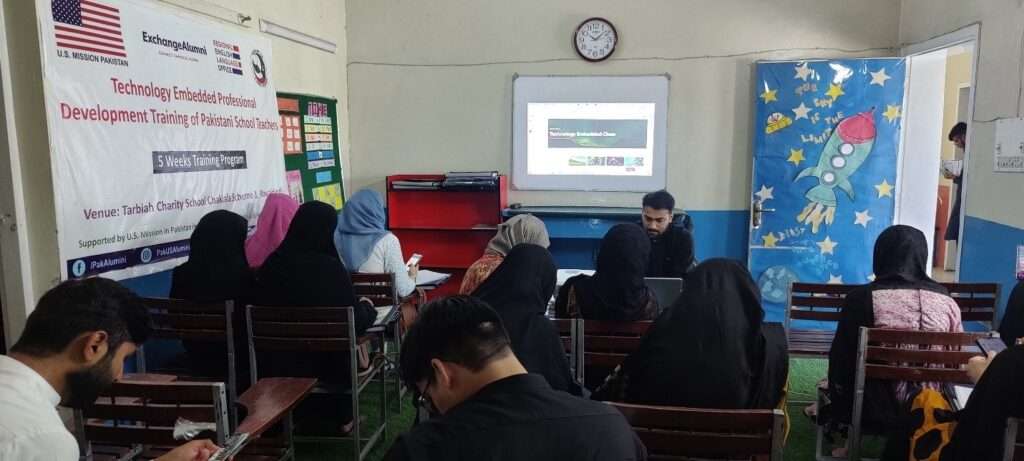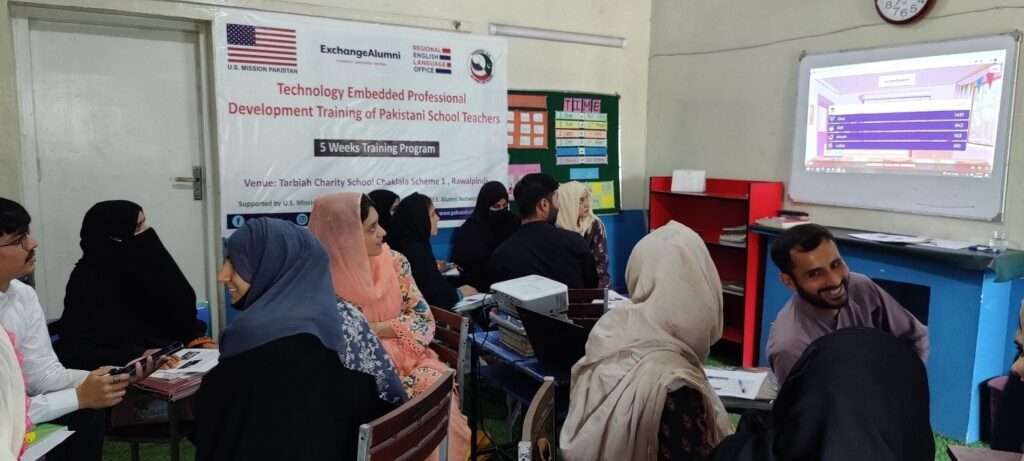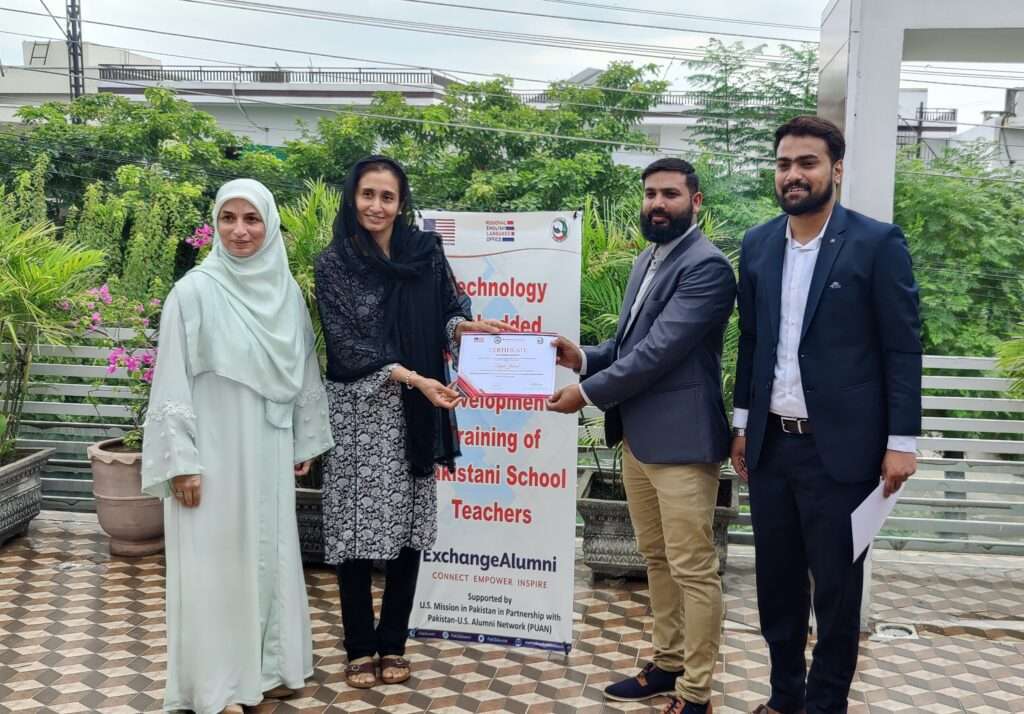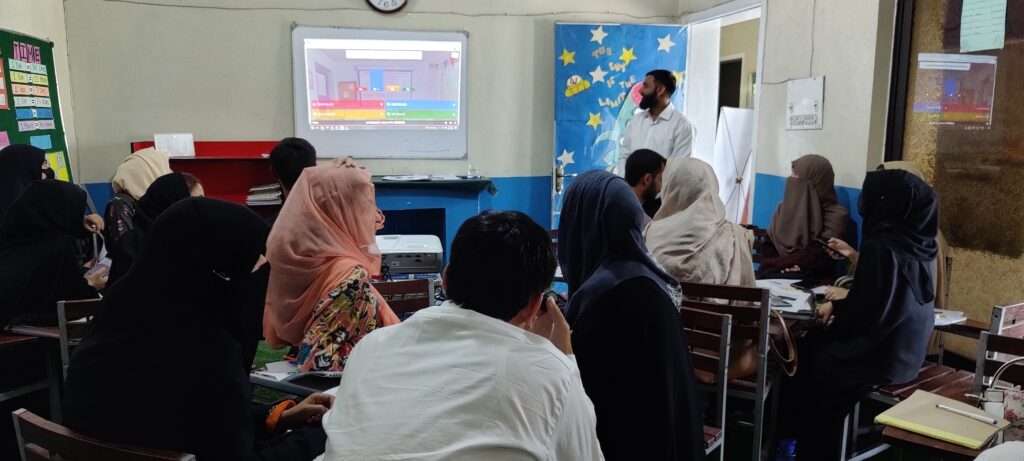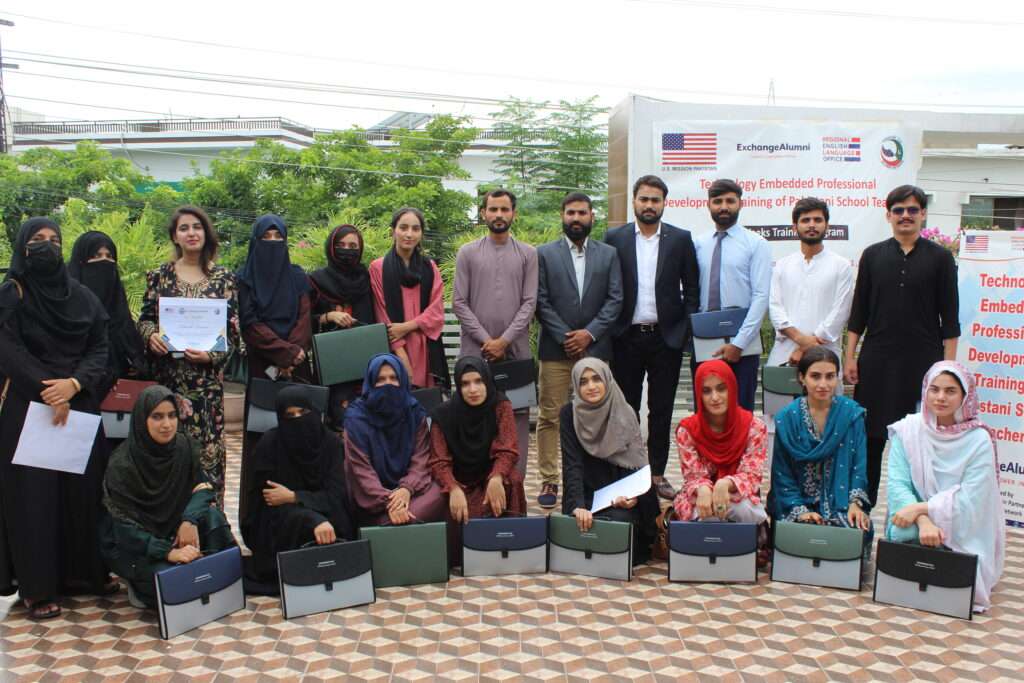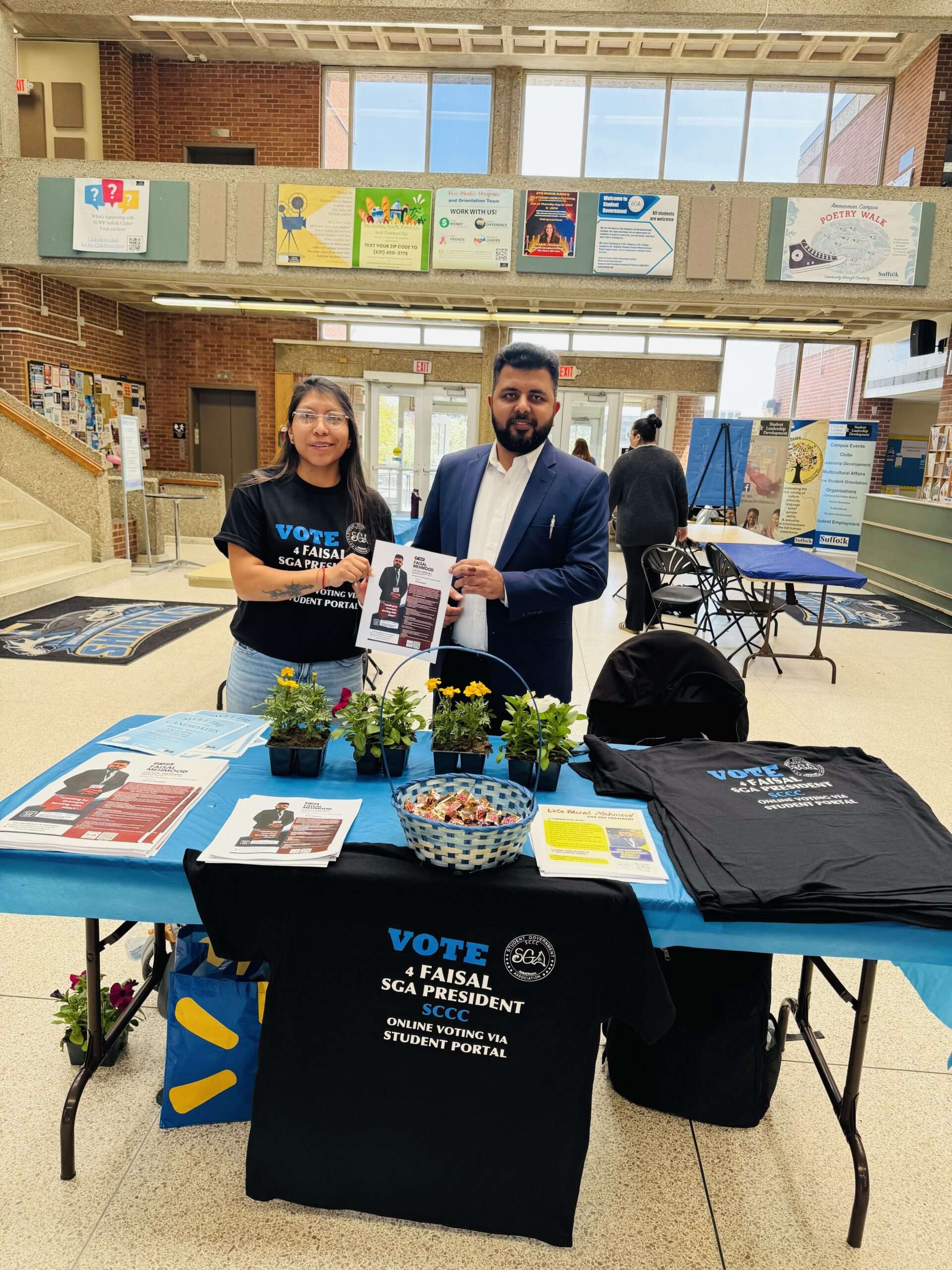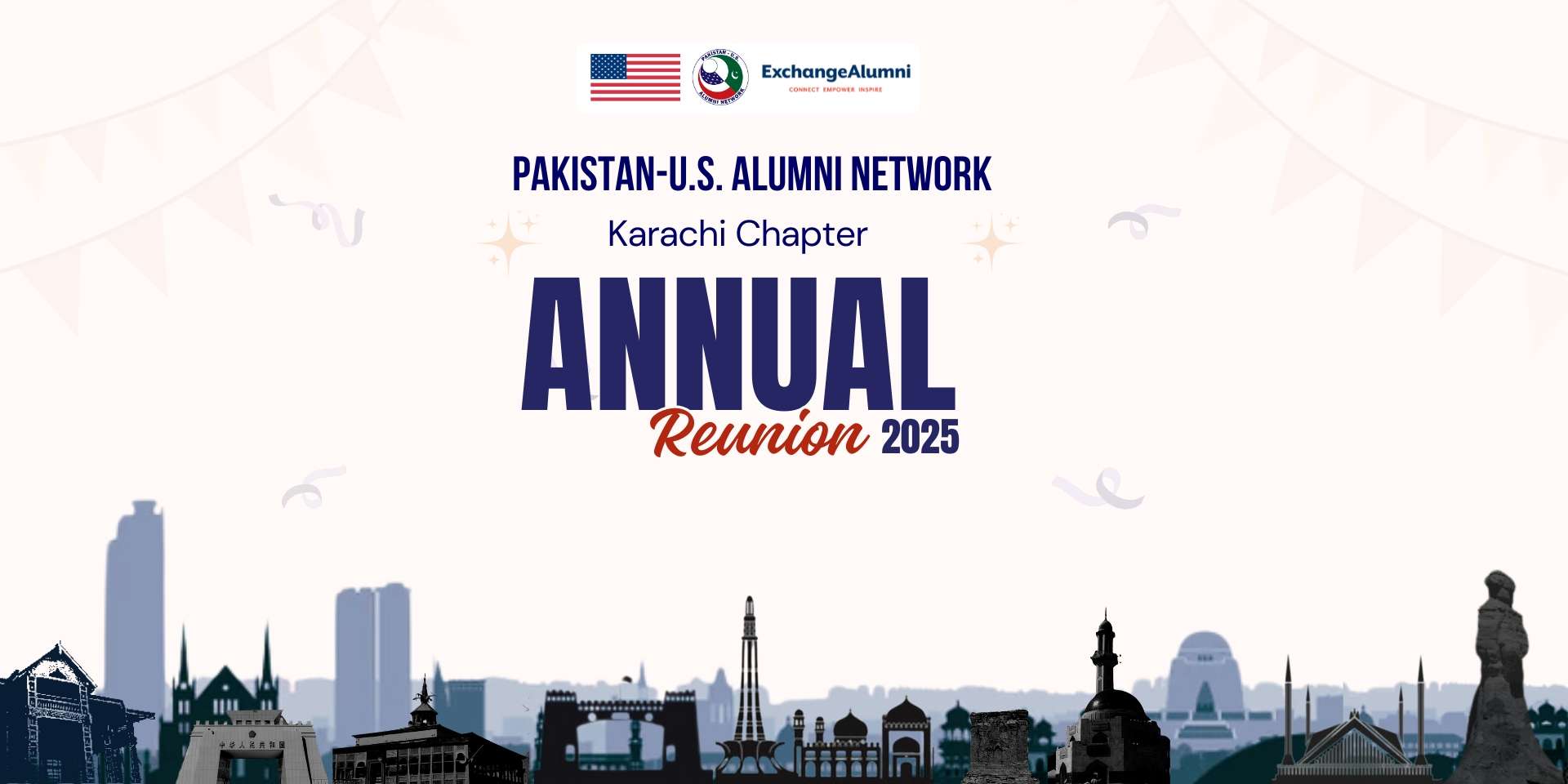A quiet revolution unfolds not in gleaming skyscrapers of Islamabad chapter of Pakistan-U.S. Alumni Network (PUAN), but within the familiar walls of Tarbiah Charity School, Rawalpindi. Muhammad Waqas, a TEA-Evolution 2018 alumnus and seasoned educator, isn’t simply teaching; he’s igniting a spark of innovation in fellow teachers’ eyes. Armed with an Alumni Small Grant and a burning passion for educational equity, Waqas embarks on a transformative journey – “Technology Embedded Professional Development Training of Pakistani School Teachers.” This isn’t just a training program; it’s a bridge between traditional methods and the dynamic world of tech-infused learning.
This wasn’t just a training program; it was a bridge between traditional methods and the dynamic world of tech-infused learning. Waqas, driven by years of experience and a thirst for progress, envisioned classrooms buzzing with digital collaboration and students empowered by technology. His diverse academic background, coupled with successful teacher training initiatives, provided the blueprint for this ambitious project.
The mission was clear: equip 25 Pakistani educators, a mix of 15 female and 10 male, with the tools and skills to revolutionize their classrooms. Over five Sundays, a meticulously crafted curriculum unfolded, delving into the world of platforms like AmericanEnglish.state.gov and Google Classroom. Participants explored not just the technical aspects but also the pedagogical power of technology, embracing student-centered approaches, cultivating critical thinking, and fostering intercultural understanding. They even gained insights into U.S. exchange programs, opening doors to future collaborations and professional growth.
Waqas’s initiative wasn’t merely born from passion; it was fueled by a stark reality. He recognized the widening gap between traditional methods and the demands of the digital age, particularly in underserved communities. By bridging this gap with technology, the project aimed to level the playing field, ensuring that every child, regardless of background, had access to the skills and knowledge needed to thrive in a tech-driven world.
The impact, tangible and profound, echoed through the transformed classrooms. Idrees Qamar, once hesitant about technology, witnessed a paradigm shift in his teaching, his voice now brimming with conviction as he spoke of technology’s transformative power. Similarly, Mehwish Fiaz, no longer confined by traditional methods, embraced the dynamism of tech-embedded learning, her eyes sparkling with the excitement of creating engaging experiences for her students.
As the final training session concluded, it wasn’t just textbooks and laptops that were packed away; it was the seeds of a revolution, meticulously sown and ready to bloom.
Waqas’s initiative wasn’t just about empowering educators; it was about transforming classrooms, one student, one lesson, one innovative step at a time.





